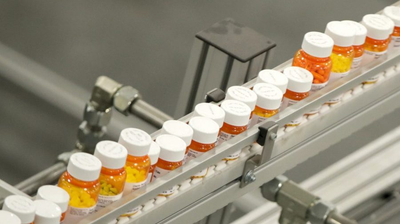
Story at a glance
Americans will take prescription medications for longer in the future, according to a recent Pennsylvania State University study.
The study found that Americans born in 2019 will spend about half of their lives taking prescription drugs, with American men and women projected to spend 48 percent and 60 percent of their lives taking them, respectively.
That translates to a total of about 47. 5 years for women and 37 years for men.
“As an American, I’d like to know what medications I’m putting in my body and how long I can expect to take them,” the study’s lead researcher Professor Jessica Ho said in a press release.
“The years that people can expect to spend taking prescription drugs are now higher than they might spend in their first marriage, getting an education or being in the labor force. It’s important to recognize the central role that prescription drug use has taken on in our lives.”
Prescription drug use among Americans has gone up over the years, with the increase stemming from the increased availability and use of generic drugs, according to the Congressional Budget Office.
About 49 percent of Americans use at least one prescription drug, according to the most recent data from the Centers for Disease Control and Prevention (CDC).
Twenty-four percent use at least three or more prescription drugs and about 13 percent take five or more, CDC data show.
The difference in the length of time men and women spend taking prescription drugs stems in part from the age at which each gender begins to take them on average.
The study found that while most American men are taking at least one prescription drug by age 40, women on average are starting to take them at a much younger age — 15.
That age gap is in part connected to the use of hormonal birth control and contraception by teenage girls, Ho said. It is also related the higher use of painkillers and psychotherapeutic drugs among young women compared to young men to treat depression, anxiety and ADHD, Ho added.
Ho used data on 15,000 American households collected by the Agency for Healthcare Research and Quality and the CDC between 1996 and 2019 for the study.